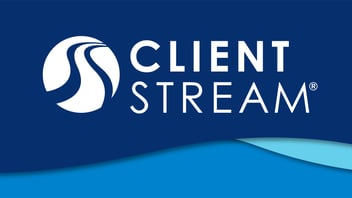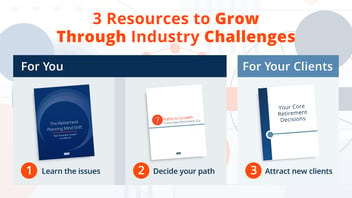
Want a Lead-to-Appointment Conversion of 60 to 70%? Here Are 4 Secrets

When the in-person educational workshops White Glove conducts on behalf of advisors dried up from 700 in February 2020 to zero a month later due to the pandemic, the company quickly pivoted to offer workshops virtually. Eight months into the pandemic, 60% of the workshops that White Glove conducted as lead-generating events for insurance and financial planning professionals were virtual, said Brad Swineheart, White Glove’s Vice President of Business Development.
Even as in-person seminars have returned, virtual seminars remain a highly successful way to attract leads. The future could have a mix of both types – an in-person event first, followed by a recorded version emailed later to no-shows or those who feel more comfortable viewing it at home.
The main reason workshops were popular among advisors before the pandemic remains the same during the pandemic – the high conversion rate. White Glove workshops, whether in-person or virtual, are successful at not only attracting qualified leads but also converting those leads to appointments. And that conversion is what really matters, Swineheart said.
White Glove, an industry leader in the seminar space and a Senior Market Sales® (SMS) partner, has an average attendance rate of 44%, with 60 to 70% of those attendees expressing interest in booking appointments. And 73% of attendees on virtual events stayed online for the entire event.
Swineheart shared some of the secrets to virtual workshop success, so you can achieve similar attendee-to-appointment conversion rates.
1. Pick the Right Topic
White Glove tested more than 90 different topics to see which consistently perform the best.
Taxes in retirement is a blockbuster with consistent attendance, Swineheart said.
Social Security planning has always been a popular seminar topic, and this remains true today, he said. People approaching retirement need help understanding when to claim their Social Security benefit, and an educational presentation on the basics is routinely effective at building trust and securing an appointment for assistance.
2. Have a Robust Appointment Confirmation Process
If you conduct educational workshops discussing Medicare, you should not contact registrants or attendees before the event, as per the Centers for Medicare and Medicaid Services' marketing regulations. For all other topics, communicating with registrants before the event can help you achieve both the number of attendees and conversions to appointments that you want.
For non-Medicare-related educational workshops, Swineheart suggests emails: a thank-you email, a confirmation e-mail and a reminder email. You also can text registrants a reminder. Swineheart said 97% of people will read a text message within the first three minutes of receiving it.
And finally, for non-Medicare-related educational workshops, make sure a human being follows up with a phone call to remind the registrant about the event.
3. Engage Participants With Calls to Action
Throughout your presentation, sprinkle in several calls to action to keep participants engaged. These can include asking participants to engage in polls. Whether you’re using Zoom, GoToMeeting or other virtual meeting platforms, you can easily create polls and launch them during your presentation to keep attendees’ attention.
Since your ultimate goal is to get attendees to make an appointment, make that call to action clear throughout the webinar. The way to do this smoothly is to say something like, “if you’d like more information on this, please schedule something with me and we’ll do a 15-minute session.” For example if you’re presenting on Social Security, after the section on spousal benefits, you encourage a call if they have any questions on spousal benefits. And you simply continue that based on the different topics you cover within the presentation, adding that if participants have questions on any of these topics, call to make an appointment.
Another in-event call to action is to encourage attendees to follow your social media pages and sign up for your emails if they already haven’t. This allows you to meet people where they are and to stay in front of them with relevant content if they are not ready to book an appointment immediately following the workshop. Swineheart said 70% of prospects will check out advisors on LinkedIn before doing business with them. In today’s information age, you need to have a digital presence so you are “stalkable,” he said.
4. Follow Up After the Workshop
If you conduct educational workshops discussing Medicare, you should not follow up with registrants or attendees unless you secured the proper CMS permission to contact. For educational workshops that don’t discuss Medicare, follow up immediately with people who did not attend but registered for the workshop by calling them. This gives them an opportunity to ask questions and set an appointment.
If you fail to follow up with no-shows, you’re missing an opportunity to connect with people who are qualified leads – they’ve already expressed interest. Swineheart said one advisor who had conducted White Glove live seminars for years but was reluctant to do virtual workshops hosted a virtual Social Security workshop in April 2020 that resulted in an eight-to-one return on investment. The success was largely due to his follow-up process with no-shows.
Record your live webinar or record one at your leisure (allowing enough time for takes and edits) and send it to people who didn’t attend. This is how you can convert prospects into someone willing to talk to you, Swineheart said.
For both attendees and no-shows, recording a personalized video that you insert into an email can be an effective follow-up, Swineheart said. There are several programs, such as BombBomb, that make this easy.
Adapt With Virtual Workshops
Swineheart said that while White Glove is seeing advisors roll up their sleeves and dig into virtual workshops with success, so many more are waiting for the pandemic economy to blow over. But that’s not a strategy he would recommend.
“You will not grow,” he said. “There’s no way you’re going to survive if you wait for this to go away. You absolutely have to adapt.”
Like White Glove, SMS adapted early to the pandemic in how it helps insurance and financial planning professionals. SMS offered a free guide, “The Ultimate Guide to Virtual Workshops,” highlighting the SMS technology and resources that help agents conduct business virtually or by phone. Among these resources is Client Stream, SMS’ lead-generating program that includes educational workshops. This program offers everything – the script, presentation and marketing materials – on topics that resonate with retirement-age prospects for educational workshops:
- Social Security planning
- Long-term care planning
- Understanding Medicare
- Taxes in retirement
- Understanding annuities
- Core retirement decisions
Technology to Convert Leads to Lifelong Clients
Only SMS offers the technology that helps you take those leads generated from in-person or virtual workshops and convert them to lifelong clients who refer, creating a steady stream of clients for years to come. These easy-to-use software programs help you uncover money for clients, from identifying optimal Social Security claiming times to finding retirement income tax savings. This SMS technology is a $300-a-month value available for free to SMS-contracted advisors.
Contact an SMS marketing consultant at 1.800.786.5566 to learn more about Client Stream virtual workshops and SMS technology.


Local Agents Advertise Value Through...
We’ve all seen the advertisements on television and other media telling Medicare clients to call various national call centers so that they can...

How Agents and Advisors Can Grow in the New...
Whether you’re an independent insurance agent, financial planner or a registered representative, the future of your business depends on how you adapt...